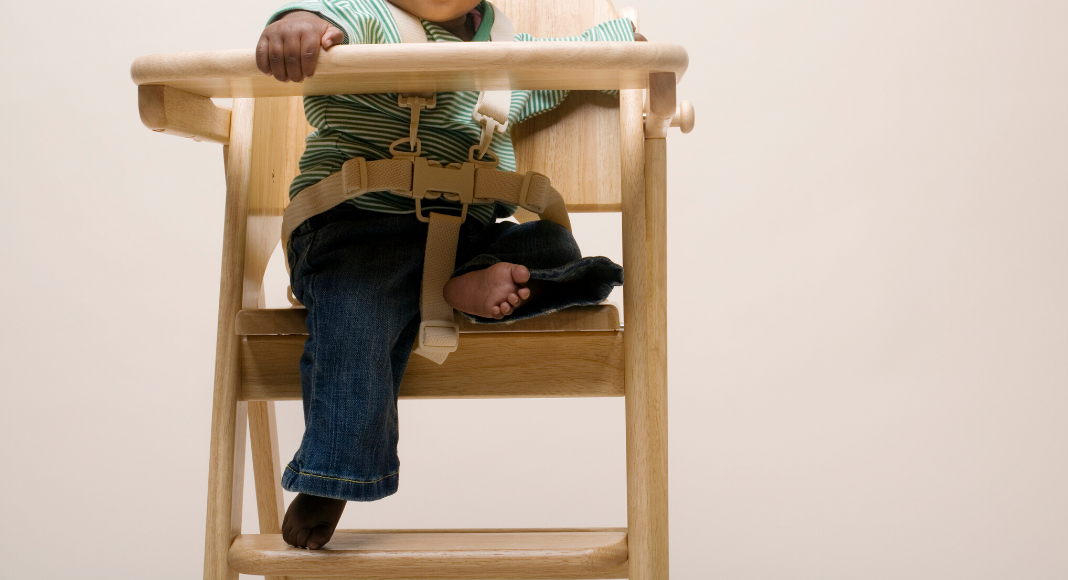Last spring, among other sicknesses, my son, Cormac, got three double ear infections and another single ear infection within just a few months. He was miserable; I didn’t sleep, so I was miserable; and we missed a lot of school and work time. Not to mention that his 7-month body underwent several rounds of systemic antibiotics, which I certainly didn’t love but found unavoidable.
The doctor starting talking to us about ear tubes. Hearing that phrase scared me. I’d never heard of them before. I kept envisioning elbow macaroni-sized plastic tubes that stuck out of his ears. I remember really hoping he wouldn’t get another infection because I didn’t want him to have to get these tubes they kept talking about.
But then we went to see the ENT, and he explained to us the benefits and potential drawbacks of tubes. He put me completely at ease. He described them as being the size of a ballpoint pen tip and explained how they’re embedded deep within the ears. He explained how they would fall out on their own after 6-12 months and that the vast majority of children don’t need a second set (although some need multiple sets of tubes). He explained the procedure—that Cormac would have to undergo general anesthesia, but only for about five minutes. He said that he could place the tubes on adults without anesthesia, but with kids, they need a way to make them stay perfectly still. He assured me that Cormac would be fine by later that day.
The ENT also told us that with kids who have chronic ear infections, they often have fluid build-up behind their ear drums even without an active infection. This can cause sound to be distorted to them and can cause a delay in their speaking and learning. We heard about kids who didn’t talk until nearly two years old, and then within two weeks of getting tubes, they were saying dozens of words. At that point, Cormac’s hearing seemed fine, but he seemed slightly delayed in speech.
After talking with him, my husband and I felt almost eager for Cormac to get the tube. The procedure day came and went without incident. It is scary to see your baby coming out of anesthesia, but he was acting normally again within a half hour. For months after that, I didn’t feel stressed at all about an impeding ear infection when Cormac got a cold, and things gradually settled into a more normal, mostly healthy routine.
But before Christmas, Cormac got a head cold, and we started to see discharge from his ears. It was surprising how much there was—it would pool in his ear and stain the shoulder of his clothes. We called the doctor, and they had us start the same drops that he had gotten after his surgery. His ear got better, and we stopped the drops, but we must not have continued them long enough, because it then got worse again. This time, the discharge was actual pus and smelled terrible. But the great thing was, it didn’t bother him! Yes, I’m sure it itched and was uncomfortable, but because he had the tubes, all that fluid could simply drain out. It must have been excruciatingly painful for all of that infected secretion to have been building pressure prior to the tubes. But now, with tubes, there were no more sleepless nights, no doctor’s appointments (we could treat it with the drops at home), no systemic antibiotics, no loss of day care/work, and no more toddler misery.
We continued longer with the drops, and the infection cleared up. It’s now the end of January, and the poor boy has yet another infection. (For most kids, their infections go away completely with the tubes, but they CAN still get them.) I was swabbing out the gunk last night when I noticed a very small piece of plastic in it: one of the tubes had come out. I called the doctor’s office this morning, and they assured me that this was not uncommon. We have another appointment with the ENT and we’ll have to determine whether he should get another set.
Short story: He will. As much as I would prefer him not to be put under anesthesia again and have another medical procedure, the reality is that the tubes have been wonderful for him. His rate of ear infections has likely gone down, and when they happen, they are not nearly as painful (for him) or stressful (for us) as they used to be. As scared as I was when they first talked about Cormac needing them, I would now 100% recommend them to any family to whom ear tubes have been suggested. If you are ever in that position and want to talk to me more about our experiences, feel free to reach out.









